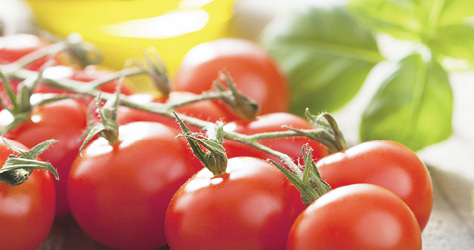What’s a healthy diet for a new mum? Do you need supplements? Can you start to lose the baby weight straight away? We answer your questions.
"I’m so hungry all the time". Pretty much all new mums say they feel constantly starving: it’s partly down to breastfeeding which uses up 500 calories a day on average and partly sleep deprivation, which makes us extra hungry, especially (sadly) for sweet carbohydrates like cake and biscuits. It’s really important to eat a nutritious diet, especially if you’re breastfeeding. Every day you need:
At a glance
- Breastfeeding uses up 500 calories a day on average
- It's best not to aim to lose weight right after the birth
- Breastfeeding mums are advised by the Government to take a vitamin D supplement containing 10 micrograms (mcg) each day

- 2-3 portions of protein from meat, fish, eggs and/or beans/pulses.
- Five portions of fruit and vegetables, especially leafy green veg.
- Carbohydrates like potatoes, rice, pasta and bread. Wholegrain is healthier as it has more fibre and will keep you going longer.
- Dairy products like semi-skimmed milk, yoghurt (unsweetened is better) and cheese
- Healthy fats from olive oil, avocados and oily fish. Aim for two portions a week of oily fish (that’s fresh tuna – but not canned, fresh or tinned sardines, mackerel, salmon and trout).
Have lots of healthy snacks around so if you don’t have time to cook a full meal (and you haven’t got anyone to strong-arm into cooking for you) your diet won’t suffer. Good foods to have in the cupboard/fridge are: potatoes for baking, cans of tuna and salmon, baked beans, cheese, hummus, yoghurts, wholewheat pitta, dried apricots, readymade soups and cereal bars.
When can I start losing weight?
Best not to aim to lose weight right after the birth: you’ll need loads of energy with a newborn baby and you’ll feel tired from lack of sleep, especially in the first three months. Definitely avoid crash diets or cutting out whole food groups like carbs as this will make you feel even more tired and lethargic. Better to concentrate on eating as healthily as you can and introducing some gentle exercise each day – walking at first, then other exercise like swimming after your six-week post-natal check. If you put on a lot of weight during pregnancy, it’s fine to lose 1-2lbs a week even if you’re breastfeeding – as long as your diet is healthy and contains all the nutrients your baby needs. Lots of mums say breastfeeding really helps them gradually lose the baby weight, although they don’t lose the last little bit until they stop breastfeeding at six months or later.
Do I need supplements?
Breastfeeding mums are advised by the Government to take a vitamin D supplement containing 10 micrograms (mcg) each day. That’s because it’s difficult for all of us to get enough vitamin D in the UK – as our main source is from sunshine on our skin between April and October. Food sources include oily fish, eggs, meat, breakfast cereals and margarine spreads. If you’re on certain benefits you may be eligible for free supplements – ask your GP or health visitor. You can get all the other vitamins and minerals you need from a balanced and healthy diet.
Do I need iron tablets?
New mums are sometimes iron-deficient. Talk to your GP before you take a supplement, though. Symptoms include: extreme fatigue, pale face, unusual food cravings, a sore tongue, itchiness and ringing in your ears. The best source of iron from your food is red meat, fish and chicken, followed by leafy green veg like broccoli and kale, beans/pulses, dried fruit and fortified breakfast cereals. Eating vitamin C with your meal (drinking juice or eating an orange for pudding) helps your body absorb the iron in food, but drinking tea or coffee while eating stops your body absorbing it.
Certain vitamins and minerals are really important when you’re pregnant and later, when you’re breastfeeding to protect your own – and your baby’s health. Check out our guide here.